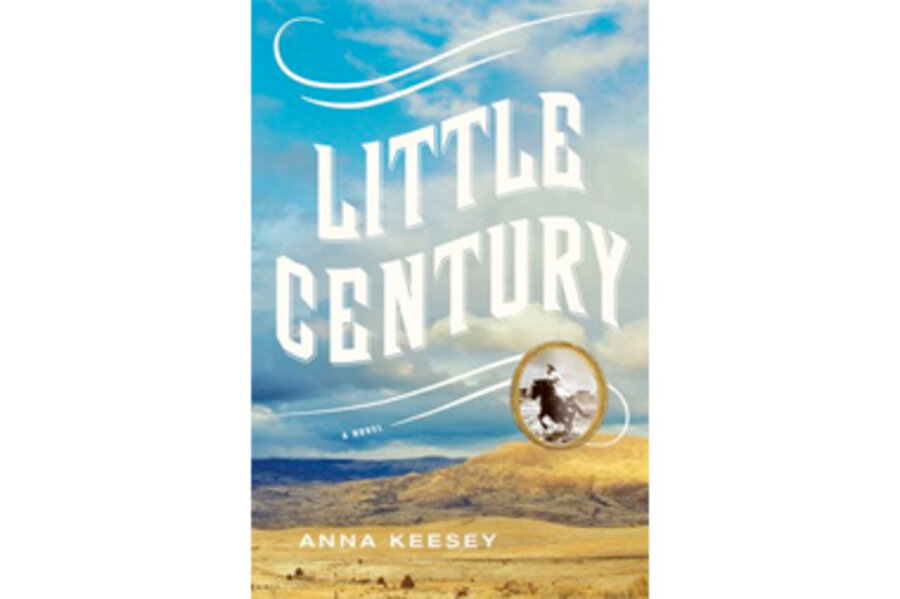Esther Chambers is another orphan who heads west by train in Anna Keesey's debut novel, “Little Century.”
The 18-year-old turns up in Century, Oregon, in 1900, just as a feud between the sheepmen and the cattlemen, led by her cousin Ferris Pickett, is escalating from broken windows to bloodshed.
Pick, as he's known, gets Esther to lie about her age before she's been in town a day in order to secure the Half-a-Mind claim. If she can farm it for six months a year for five years, the land, and its important water rights, will be hers.
As Esther settles in, she gets to know the inhabitants like Joe Peaslee, a veteran with a laudanum addiction, and Vincent, the old cattlehand, who knew Pick when he was a little boy so hungry he would eat with two forks – hence the name of his ranch. (A rancher who names his land after greed can't possibly make for a comfortable neighbor.)
“A buckaroo's pride is a delicate creature,” Vincent tells Esther in words that turn out to be prescient. “A pride as tender as the inside of a foot.”
There's also Jane Fremont, the schoolteacher from back East, and Violet Fowler, the nosy postmistress, as well as the Rev. Endicott and his wife, Delight, and Delores and Fred Green and their daughter, Marguerite.
Century is tiny, “two streets crossed with two streets, like tic-tac-toe on a tablet of yellow dirt,” and its future depends on getting the railroad.
Esther, who grew up in Chicago, learns to ride, do laundry, and plow a straight furrow. She also learns to type and work a printing press. But her delight in her growing independence is tempered by the violence, which becomes more gruesome. And while Esther is attracted to Ben Cruff, one of the shepherds, handsome Pick thinks his cousin could be a cozy little helpmeet.
“Lately I have been reading about orphans,” Peaslee tells Esther when they meet, before asking her if she knows about “the little gray one who goes into the attic.” “I gather that they often do well, but only after numerous trials.”
Keesey, a graduate of the Iowa Writer's Workshop, writes evocatively about the high desert without romanticizing life on the frontier.
“You don't hear of many gunfights nowadays,” Pick reassures Esther at the beginning of the novel. “Nobody's a good enough shot anymore.”
Nonetheless, at least one citizen of Century ends up with a bullet in them before novel's end, and Esther is determined that justice will be done.







